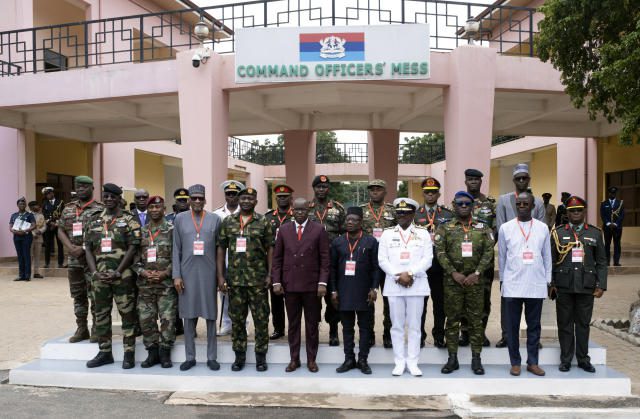
Defense chiefs from West Africa proposed a plan to deploy a 5,000-strong standby force to tackle the region’s escalating security challenges. The proposal, presented in Abuja, Nigeria, comes with an annual price tag of $2.6 billion. The initiative aims to prevent further military coups that have recently rocked several West African nations.
Nigeria’s Defense Minister, Mohammed Badaru, emphasized the need for the standby force to prevent military takeovers that have destabilized the region. Thursday’s meeting marked a significant step forward, as the bloc publicly detailed the financing for its long-discussed standby force.
However, analysts have highlighted potential hurdles, including securing financial contributions from member states and cooperation from countries most affected by military takeovers. Omar Alieu Touray, president of the ECOWAS Commission, stressed the urgency of addressing insecurity within the community and called upon member states to endorse the proposed force.
READ ALSO:
President Tinubu Establishes Cabinet Committee to Combat Cholera Outbreak
The plan is slated for consideration at an upcoming summit of regional heads of state. Recent military coups in West and Central Africa have left four nations under military rule, deeply dividing the 15-member ECOWAS and destabilizing the region. Countries like Mali, Burkina Faso, and Niger are struggling to contain unrest that is now spreading to coastal nations.
ECOWAS has previously attempted to restore democratic governance in coup-affected states, but the withdrawal of Mali, Burkina Faso, and Niger from ECOWAS membership has complicated regional efforts. Touray confirmed that officials from these countries were invited to participate in Thursday’s meeting to collaborate on forming the standby force. Their willingness to engage in this initiative remains uncertain.
Analysts like Ulf Laessing and Kars de Bruijne have expressed skepticism about ECOWAS’ independent military capabilities, emphasizing the need for unified member state commitment and a strategic approach to address instability in the region. Laessing suggested that effective intervention would likely require foreign assistance, while de Bruijne noted that ECOWAS’ ability to deliver on such initiatives has been historically problematic.


1 Comment
Pingback: Zimbabwe's Economic Growth Rate Predicted to Slow Down to 2% in 2024, Says Reserve Bank of Zimbabwe (RBZ) - Mbamali